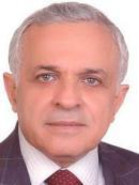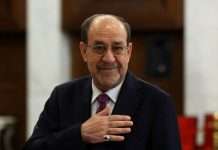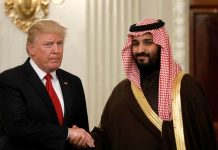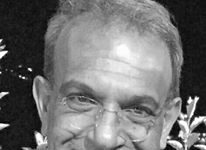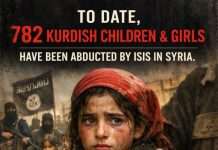ذكرى لجوء الجنرال وأخطار الحرب
رضوان السيد/الاتحاد/ الأحد 15 أكتوبر 2017
حلت في 13 أكتوبر ذكرى لجوء الجنرال عون، قائد الجيش اللبناني السابق، إلى السفارة الفرنسية في بيروت، وقد صار رئيساً للجمهورية، ومع أنّ التاريخ لا يعيد نفسه، فهناك مأساةً على وشك الحدوث تتناول الداخل اللبناني، فالانقسام الداخلي حاصلٌ ويزدادُ عمقاً بسبب غلبة «حزب الله» على الداخل اللبناني واستيلائه على المؤسسات، وسيطرته على قرار الجيش، وفي الوقت نفسه انحياز رئيس الجمهورية للحزب حتى في وجه القرارات الدولية، وقد بيَّنَ حدثان أخيران سيطرة الحزب على قرار الدولة والجيش: تكرار رئيس الجمهورية اللبنانية للقول بأنّ ردع إسرائيل محتاجٌ إلى «حزب الله»، لأنّ قوة الجيش لا تكفي، وزعمه أن قوات الحزب لا علاقة لها بالملفات الداخلية، وأنّ لبنان ملتزمٌ النأي بالنفس تجاه الأزمة السورية، والكل يعرفون أنّ «حزب الله» مسيطرٌ بقوة الميليشيا على الأرض اللبنانية، وهو يقاتل في سوريا بعشرات الآلاف إلى جانب ميليشيات شيعية أُخرى! أما الخطر الثاني فيتعلق بالتهديدات الإسرائيلية المتبادلة مع الحزب، فكل منهما يهدد الآخر بالويل والثبور وعظائم الأمور. إسرائيل يقول مسؤولوها إن الحرب لن تقتصر على الحزب، بل ستكون ضد كل لبنان، وبالمقابل يقول نصرالله إنّ إسرائيل ستكون كلّها مهدَّدة إذا هاجمت الحزب بلبنان!
وتُضافُ لذلك عقوبات الولايات المتحدة المتصاعدة ضد الحزب، والذي تعتبره تنظيماً إرهابياً، والعقوبات هذه المرة لا تقتصر على الحزب وأعماله، بل تتناول إيران والاتفاق النووي بشكل مباشر، ولأنّ «حزب الله» كلّه من بدايته إلى نهايته هو تنظيم إيراني، فمن الطبيعي أن تفكّر إيران باستخدامه كلّما شعرت بالخطر. وبذلك فثمة مصلحتان في الحرب إن لم تكن ثلاث مصالح؛ الأولى لإسرائيل التي ترى أنّ قوى الحزب تنمو في سوريا ولبنان، وأنه إذا كانت الحرب ضد إيران مستبعدة، فإنّ تقطيع أوصالها في سوريا ولبنان هو أمرٌ مستحسَنٌ، وقد تشاركها في ذلك الولايات المتحدة. ومن جهة ثالثة، قد تكون إيران مهتمة بتصعيد النزاع رداً على إجراءات ترامب ضدها، ولكي لا تتهم بالضعف، وقد قال المسؤولون الإيرانيون إن اعتبار الحرس الثوري تنظيماً إرهابياً يعني قيامها بردٍّ ساحق!
هل لهذه التهديدات المتبادلة صدقية؟ الطرفان لا يريدان الحرب الآن، وبخاصة نصرالله، لكنها قد تقع بالخطأ من أحد الطرفين، وردّ الطرف الآخر. وقد دأبت إسرائيل على ضرب قوافل وقواعد «حزب الله» في سوريا دون أن يحرك النظام أو الحزب أو إيران أو روسيا ساكناً.
ماذا يكون الموقف لو أنّ الحرب وقعت؟ بالطبع لا يمكن لا لرئيس الجمهورية، ولا للحريري فعل شيء، لكنهما كانا يستطيعان فعل أشياء كثيرة في الشهور الماضية، فالرئيس عون كان بوسعه الصمت بشأن الجنوب، الذي تزعم إسرائيل دائماً أن الحزب لا يزال يعمل فيه رغم القرار الدولي رقم 1701. وكان بوسع رئيس الجمهورية إظهار الجيش بمظهر المستقل والعنصر الفاعل على الحدود الشرقية للبنان مع سوريا، لكن الرئيس اختار بعد قرار الحرب ضد «داعش» وقف إطلاق النار بعد طلب نصرالله، وما يزال الأخير يزعم أنه انتصر، وما تجرأت الدولة اللبنانية على الاحتفال بما تعتبره انتصاراً لجيشها! ولهذين السببين بدا لبنان وقرارات جيشه ورئيسه أدوات بيد الحزب.
هل كان بوسع رئيس الحكومة فعل شيء؟ بالطبع كان يستطيع ذلك بالضغط على رئيس الجمهورية من أجل مصلحة لبنان الفائقة في التهدئة بالجنوب، والذي ظلت جبهته هادئة منذ عام 2006 بسبب وجود القوات الدولية بمقتضى القرار 1701. وكان بوسع رئيس الحكومة الاعتراض على إيقاف القتال ضد «داعش» بناءً على طلب نصرالله، لكنه اختار بدلاً من ذلك استدعاء مدير الأمن العام، فيضيف إلى تكليف نصرالله والرئيس له بأن يكون ثالثاً في الاتفاق مع «داعش» إلى جانب نصرالله والنظام السوري، بأن يكلّفه هو أيضاً، فزاد بذلك من الرقّة حتى انفلقا! وقد تلقّى رئيس الجمهورية مدحاً من نصرالله، إذ اعتبره «وطنياً»، وهذه شهادة عظيمة، لكننا لا ندري نوعية المكافأة التي تلقاها الرئيس الحريري!
والخطير الآن أنّ الموقف خرج من أيدي اللبنانيين جميعاً، وصار بأيدي الإسرائيليين والإيرانيين والروس والأميركيين، وهذا ما حصل عام 2006 حينما أدخلت إيران لبنان في حرب بإغارة الحزب على دورية إسرائيلية.
*أستاذ الدراسات الإسلامية في الجامعة اللبنانية -بيروت
http://www.alittihad.ae/wajhatdetails.php?id=96044
Threats of war and the memory of Aoun asylum
Radwan al-Sayed/Asharq Al Awsat/October 16/17
October 13 marked the day when General Michel Aoun, a former commander of the Lebanese army, fled to the French Embassy in Beirut. Although history does not repeat itself, a tragedy that affects Lebanon’s domestic situation is about to happen.
Divisions are widening and deepening in the country due to Hezbollah’s domination and its control of institutions and the army’s decision-making. Meanwhile the president, i.e. Michel Aoun, is biased toward Hezbollah even when it comes to international decisions.
Some of Aoun’s recent remarks reflected Hezbollah’s control over the decision making process of the state and army as he reiterated that Hezbollah is needed to deter Israel because the army’s power is not enough and claimed that Hezbollah has nothing to do with domestic affairs. Aoun also claimed that Lebanon is committed to the dissociation policy toward the Syrian crisis.
Iran may be interested in escalating the conflict to respond to Trump’s measures against it and in order not to be accused of being weak
Everyone knows that Hezbollah controls Lebanon through its militias’ power and that it is fighting in Syria alongside other Shiite militias! In addition to all this, there are the threatsm, which Israel and Hezbollah are exchanging. Israeli officials are saying that any future war will target all of Lebanon and not just Hezbollah while Nasrallah is saying that all of Israel will be threatened if it attacks Hezbollah in Lebanon.
There are also the increasing American sanctions against Hezbollah, which the US views as a terror group. This time, the sanctions do not only target Hezbollah and its practices but it directly targets Iran and the nuclear agreement. Since Hezbollah is a purely Iranian organization, it is normal for Iran to consider using it whenever it feels threatened.
A potential war
A potential war thus has the following interests to consider. First of all, Israel thinks Hezbollah’s power is growing in Syria and Lebanon and if war against Iran is unlikely then ending Iran’s links in Syria and Lebanon is preferable. The US may share this opinion with Israel.
Meanwhile, Iran may be interested in escalating the conflict to respond to Trump’s measures against it and in order not to be accused of being weak. Iranian officials said considering the Revolutionary Guards as a terror organization entails an overwhelming response.
Are these exchanged accusations credible? Both parties do not want war now, especially Nasrallah, but it may accidentally happen if one party does something and the other responds. Israel has struck Hezbollah’s bases and convoys in Syria and the Syrian regime, Iran, Russia and Hezbollah itself did not do anything.
What will Lebanon’s stance be if the war happens? If it happens, Aoun and Hariri cannot do anything but they could have done many things in the past months. Aoun could have kept silent regarding the South where Israel claims that Hezbollah is still operating in despite UN Security Council Resolution 1701.
Fighting ISIS
The president could have shown the army as independent and efficient on the eastern borders with Syria but following the decision to fight ISIS, he opted for a ceasefire upon Nasrallah’s request.
Nasrallah is still claiming that he emerged victorious while the Lebanese state did not dare celebrate what it viewed as a victory for its army. This is why Lebanon and the decisions of its army and president looked like they are tools in Hezbollah’s hands.
Could the prime minister have done anything? He could have pressured the president to serve Lebanon’s interest of maintaining calm in the South where the front has been calm since 2006 after international troops deployed according to UN Resolution 1701. The prime minister could have objected to suspending the fighting against ISIS upon Nasrallah’s request.
However, instead of doing that, he summoned the general security chief and assigned him as a third party, in addition to Nasrallah and the president, in the deal between ISIS and Nasrallah and the Syrian regime. Nasrallah commended the president as he viewed him as a “patriot,” which is a great testament. However we do not know the type of the reward which Hariri received!
What’s dangerous now is that the situation is out of Lebanon’s hands as it’s in the hands of the Israelis, Iranians, Russians and Americans. This is what happened in 2006 when Iran engaged Lebanon in a war following Hezbollah’s raid against an Israeli patrol.
____________________
Radwan al Sayed is a Lebanese thinker and writer who attained a bachelor degree from the Faculty of Theology at al-Azhar University and a PhD in Philosophy from the University of Tübingen in Germany. He has been a scholar of Islamic studies for decades and is the former editor-in-chief of the quarterly al-Ijtihad magazine. Radwan is also the author of many books and has written for Arab dailies such as al-Ittihad, al-Hayat and ash-Sharq al-Awsat.












